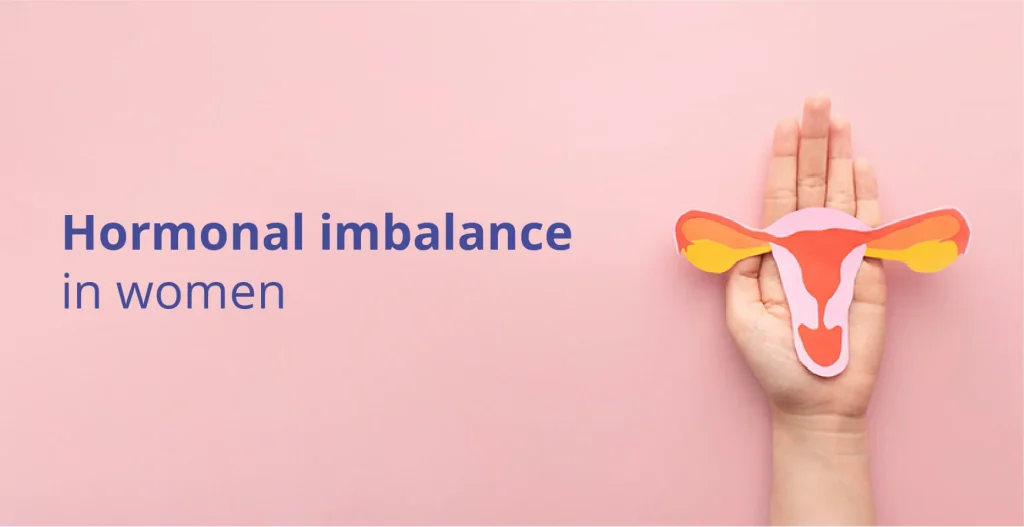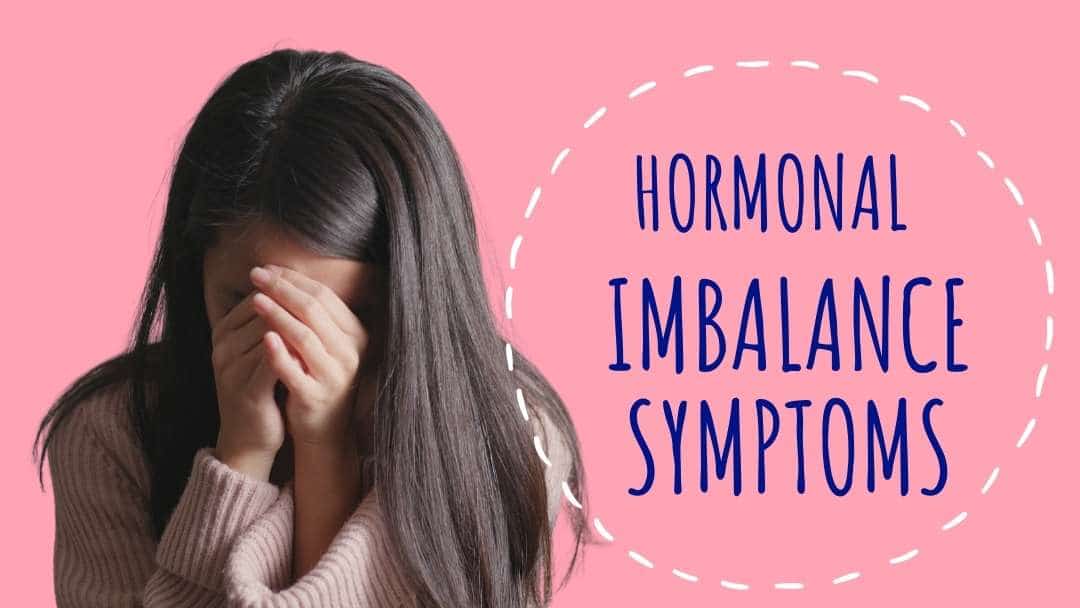Understanding Hormonal Imbalances in Women: Common Issues, Symptoms, and Treatment Options

Hormonal imbalances can significantly impact a woman’s health and well-being. Hormones play a crucial role in regulating many bodily functions, including metabolism, mood, reproductive health, and more. When these hormones are out of balance, it can lead to a variety of health issues. In this blog, we’ll explore some common hormonal imbalances in women, their symptoms, and available treatment options.
Common Hormonal Imbalances in Women
- Polycystic Ovary Syndrome (PCOS)
- Overview: PCOS is a condition where the ovaries produce an abnormal amount of androgens, male sex hormones that are usually present in women in small amounts. This can lead to the formation of cysts on the ovaries.
- Symptoms: Irregular periods, excessive hair growth (hirsutism), acne, obesity, and infertility.
- Treatment: Lifestyle changes (diet and exercise), hormonal birth control to regulate periods, anti-androgen medications, and medications like metformin to improve insulin sensitivity.
- Hypothyroidism
- Overview: Hypothyroidism occurs when the thyroid gland does not produce enough thyroid hormones.
- Symptoms: Fatigue, weight gain, depression, constipation, dry skin, and sensitivity to cold.
- Treatment: Thyroid hormone replacement therapy (levothyroxine), regular monitoring of thyroid function, and dietary changes to support thyroid health.
- Hyperthyroidism
- Overview: Hyperthyroidism is when the thyroid gland produces too much thyroid hormone.
- Symptoms: Weight loss, rapid heartbeat, anxiety, tremors, sweating, and increased appetite.
- Treatment: Anti-thyroid medications, radioactive iodine treatment, beta-blockers to manage symptoms, and, in some cases, surgery.
- Premenstrual Syndrome (PMS) and Premenstrual Dysphoric Disorder (PMDD)
- Overview: PMS and PMDD are related to hormonal changes in the menstrual cycle. PMDD is a more severe form of PMS.
- Symptoms: PMS includes bloating, breast tenderness, mood swings, and irritability. PMDD can cause severe depression, anxiety, and irritability.
- Treatment: Lifestyle changes, NSAIDs for pain, hormonal birth control, antidepressants for PMDD, and dietary adjustments.
- Menopause
- Overview: Menopause marks the end of a woman’s menstrual cycles and is diagnosed after 12 months without a menstrual period.
- Symptoms: Hot flashes, night sweats, mood changes, vaginal dryness, and sleep problems.
- Treatment: Hormone replacement therapy (HRT), lifestyle changes, medications to manage specific symptoms (e.g., antidepressants for mood swings), and natural remedies like phytoestrogens.
- Adrenal Insufficiency (Addison’s Disease)
- Overview: Adrenal insufficiency occurs when the adrenal glands do not produce enough cortisol and aldosterone.
- Symptoms: Fatigue, muscle weakness, weight loss, low blood pressure, and darkening of the skin.
- Treatment: Hormone replacement therapy (glucocorticoids and mineralocorticoids), dietary changes, and regular monitoring.
Symptoms of Hormonal Imbalances
Hormonal imbalances can manifest through a wide range of symptoms, depending on which hormones are affected. Common symptoms include:

- Irregular or absent periods
- Unexplained weight gain or loss
- Fatigue and low energy
- Mood swings, anxiety, or depression
- Difficulty sleeping or insomnia
- Changes in appetite and digestion
- Hair loss or excessive hair growth
- Skin issues like acne or dry skin
- Decreased libido
- Hot flashes or night sweats
Treatment Options for Hormonal Imbalances
Treatment for hormonal imbalances depends on the underlying cause and the severity of the symptoms. Here are some common treatment options:
- Lifestyle Changes
- Diet: Eating a balanced diet rich in fruits, vegetables, whole grains, and lean proteins can help regulate hormones. Reducing sugar and refined carbohydrates is also beneficial.
- Exercise: Regular physical activity helps maintain a healthy weight and can improve hormone regulation.
- Stress Management: Techniques such as yoga, meditation, and deep breathing exercises can reduce stress and improve hormonal balance.
- Medications
- Hormonal Birth Control: Used to regulate menstrual cycles and reduce symptoms of hormonal imbalances like PCOS and PMS.
- Thyroid Medications: Levothyroxine for hypothyroidism and anti-thyroid drugs for hyperthyroidism.
- Insulin-Sensitizing Agents: Medications like metformin for women with PCOS.
- Hormone Replacement Therapy (HRT): Used for managing menopause symptoms and adrenal insufficiency.
- Natural Remedies
- Herbal Supplements: Such as black cohosh, evening primrose oil, and chasteberry can help manage symptoms of menopause and PMS.
- Phytoestrogens: Plant-based estrogens found in soy products and flaxseeds can help balance hormones during menopause.
- Medical Procedures
- Surgery: In severe cases of hyperthyroidism or PCOS, surgical options may be considered.
- Radioactive Iodine Therapy: Used to treat hyperthyroidism by shrinking the thyroid gland.
Conclusion
Hormonal imbalances in women can affect overall health and quality of life. Recognizing the symptoms and seeking appropriate treatment is crucial. By making lifestyle changes, using medications when necessary, and exploring natural remedies, women can effectively manage hormonal imbalances and improve their well-being. Always consult with a healthcare professional to determine the best course of action for your specific needs.















